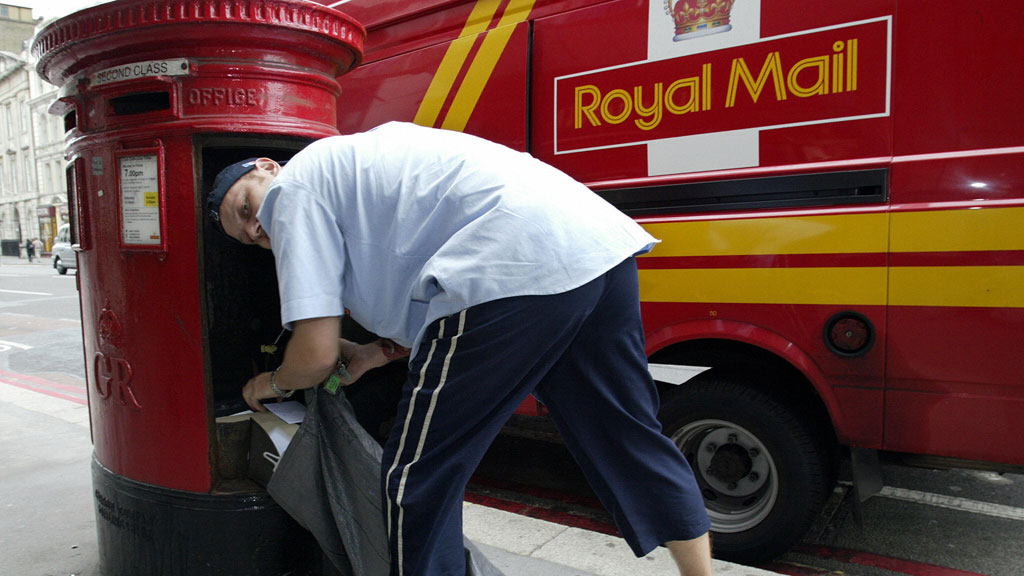Is it thumbs up for the Royal Mail sell-off?
There are fears vulnerable people in rural communities may suffer if the local postie is pushed out by profit-making motives, while arguments continue over whether Royal Mail has been undervalued.

Questions remain over whether the government set a low value for Royal Mail to guarantee all its shares are sold and avoid an embarrassing business failure.
Labour’s shadow business secretary Chuka Umunna has said the government should “pull the plug” on the privatisation, and claimed it is missing a trick by selling off Royal Mail cheaply and that its vast range of national properties may not be properly valued.
Concerns have also been raised that isolated communities, most likely to be the least profitable for a privately-operated mail operation, will suffer as rural services are cut back and postmen spend less time with their locals.
Pitching privatisation
The minimum threshold for buying into Royal Mail has been set at £750, which may mean individual investors are squeezed out in favour of institutional investors, who have already shown great interest in the sell-off.
The government is selling off 52.2 per cent of Royal Mail and may yet sell a further 15 per cent. Its universal service obligation, which ensures same-price delivery around he country, is due to expire in 2015.
The government and the advisers need the float to be a success. Gert Zonneveald, Panmure Gordon
In an open letter to Business Secretary Vince Cable, Mr Umunna said “many will conclude that the Royal Mail has been significantly undervalued, given the potential for a privatised Royal Mail to sell off prime development sites across the country and relocate facilities to other locations where property prices are cheaper”.
Royal Mail has valued its UK property portfolio at £1bn, but Mr Umunna suggested that its Clerkenwell sorting station may be worth that much alone, in addition to the £500m that could be brought in by selling its Nine Elms site.
End of the local postie?
Of greater concern to some people will be warnings from Mario Dunn, campaign director for Save Our Royal Mail, who said commercial motives may eventually leave loss-making rural areas poorly served by the Royal Mail, and in turn threaten the postie’s informal role in the community.
“It may well be that Royal Mail says in a few years ‘we just don’t want to take on any more loss-making activities’,” Dunn said.
“The new owners will want far greater transparency as to how much everything costs,” he added. “Whilst Royal Mail does some very good things as a community body, there’s no legislation saying they have to do it. Their primary concern will be shareholder return.”
The community role played by postmen “is really particularly with elderly people,” he added. “For people who are isolated they don’t get to interact with a lot of people.
“It’s an informal thing, it’s a village life. Those are precisely the areas where there will be pressure to cut back.”
But Royal Mail rejected the possibility of a declining role for the local postie because of the universal service obligation.

A Royal Mail spokesperson told Channel 4 News: “I don’t see that postmen will stop being as helpful as they are now because they are in corporate hands. Rural areas will continue to receive a full, six day a week collection and delivery service at a uniform tariff.
“Any change to service levels or the uniform tariff would have to be passed through an affirmative vote in both Houses of Parliament.”
Ensuring the sell-off
Labour has claimed the Royal Mail privatisation, estimated at about £3bn, is undervalued, but market analysts said this was a deliberate ploy by the government to ensure that all available shares were sold.
Chuka Umunna cited a report by investment firm Panmure Gordon which said the sell-off could be worth closer to £4bn, based on similar privatisations of mail services in other countries, such as Belgium’s BPost, Austrian Post, Germany’s Deutsche Post and Singapore Post..
But the author of that report, Gert Zonneveald, told Channel 4 News that issuing shares at a lower price than their actual value was crucial to stimulate buyer interest.
“The government and the advisers need the float to be a success,” he said. “If you bring the company to market at exactly what it’s worth, no-one’s going to buy it.”
The threat of strike action by the Commercial Workers’ Union will also have played on ministers’ minds, with the union due to vote on strike action a day after shares go on sale on 16 October, added Zonneveald. For this reason, “the government may have thought they’d need to discount a little more than they otherwise would have,” he said.
Ishaq Siddiqi, a market analyst for investment company ETX Capital, told Channel 4 News the government’s valuation of Royal Mail “is a bit cheap”, but agreed it has been “cleverly engineered” to ensure the success of the sell-off.
“The government did not want this to be seen as a failure in any way, especially with the election coming up,” Mr Siddiqi said.